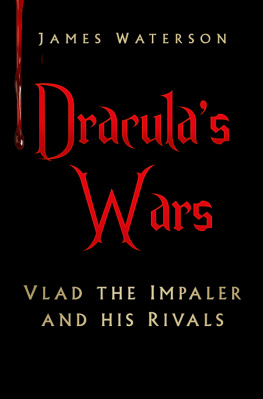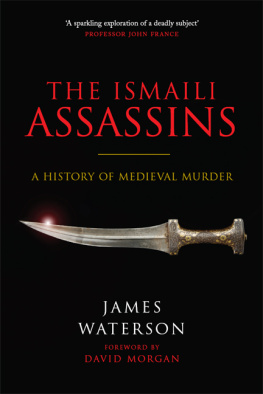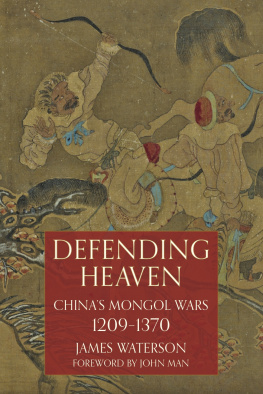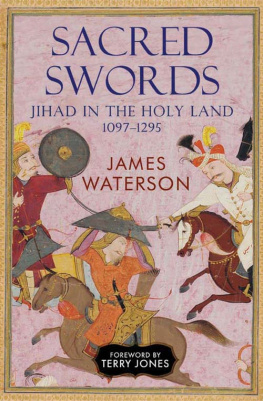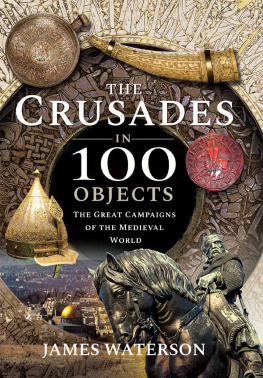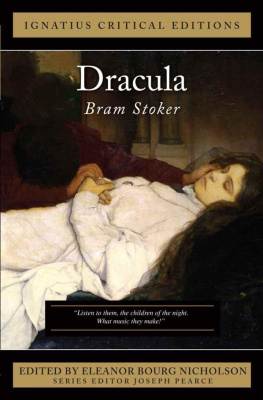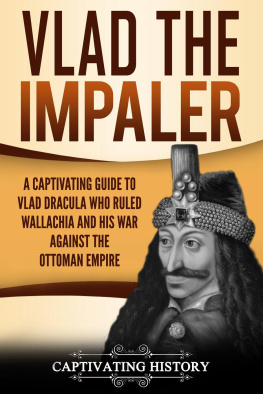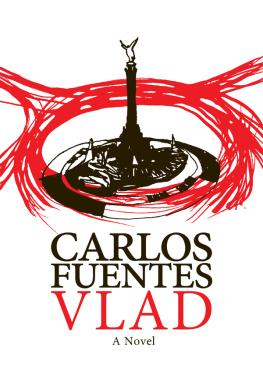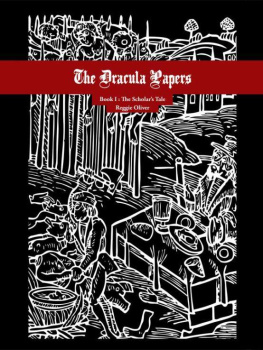
For RO&DO&37
The old centuries had, and have, powers of
their own which mere modernity cannot kill.
Jonathan Harkers Journal, 15 May
Bram Stoker, Dracula
We look on past ages with condescension, as a mere preparation for us but what if we are only an afterglow of them?
J.G. Farrell, The Siege of Krishnapur
The Szekelys and the Dracula as their hearts blood, their brains, and their swords can boast a record that mushroom growths like the Habsburgs and the Romanoffs can never reach. The warlike days are over.
Blood is too precious a thing in these days of dishonourable peace; and the glories of the great races are as a tale that is told.
I have acknowledged the intellect, passion, humour and numerous kindnesses of two of my former tutors at the School of Oriental and African Studies in the introductions of a total of four previous volumes. I am pleased to once again have the opportunity to express my ongoing debt to Dr Brian Williams and to Dr David Morgan. I thank the former for having set the undergraduate essay Discuss Ottoman relations with the Serbs from the Battle of the River Maritz to the fall of Constantinople and the latter for expounding his theory that you just cannot avoid the Mongols on day one of Eurasian History 101, which has shaped my approach to the subject ever since, and it is a pleasure to once again prove him right; for if the nascent Ottoman state was not the direct result of the collapse of the Mongol-created Sultanate of Rum then I am not entirely sure what it was.
To these superb teachers and academics I would like to add a third and somewhat belated acknowledgement. Dr Colin Heywood introduced me to the later Ottoman Empire and I can give him no higher praise than that given during a review of one of his works on Bosnia by the Bulletin of the School of Oriental and African Studies: another example of his versatility and of thoughtful and careful scholarship in both its conceptual and practical aspects, unlike much Ottoman scholarship, Heywoods prose is always a pleasure to read. It was also always a pleasure to listen to Dr Heywood lecture.
I would like to thank my indulgent Dubai office colleagues, Ian Milburn and Larry Neal, for their genially unimpeachable forbearance at yet another retelling of how Groussets classic tripartite chronology of Crusade and Jihad in the Holy Land, Lanarchie Musulmane: Lequilibre: Lanarchie Franque could be applied mutatis mutandis to the medieval and early modern history of the Balkans as a scheme, with Dracula as both an identifiable point in its evolution, and an exemplar of the anarchic response of the medieval Europeans to the challenge of the Ottomans in the fourteenth and fifteenth centuries.
Their restraint and nodding encouragement while I expounded such ideas has led, in no small part, to the production of this volume with its overarching theme of Lanarchie Europen: Lequilibre: Lanarchie Turc .
I cannot give enough thanks to His Majesty, King Abdullah II of Jordan for his hospitality at several points in the last year and for the simple pleasure of our discussions on matters military, Middle Eastern and medieval.
In every book that I have produced thus far I have expressed my love and gratitude to my wife, Michele. This will never change; she remains the principal delight of my life.
Notes
Count Dracula, Johnathan Harkers Journal, 8 May. Stoker, B., Dracula , 1897.
Grousset, R., Histoire des Croisades et du Royaume Franc de Jerusalem , Tome I: Lanarchie Musulmane et la Monarchie Franque , Plon, Paris, 1934; Histoire des Croisades et du Royaume Franc de Jerusalem , Tome II: Monarchie Franque et Monarchie Musulman lequilibre , Plon, Paris, 1935; Histoire des Croisades et du Royaume franc de Jrusalem , Tome III: La Monarchie Musulmane et lanarchie Franque , Plon, Paris, 1935.
CONTENTS
There are many, many ways of rendering both Turkish and the Cyrillic languages of the Balkans into English. I have generally opted for the most commonly used short forms of names rather than the more scholarly forms, simply because the vast swathe of names that the reader encounters whilst reading any history of the medieval Balkans means that any familiar faces are welcome.
For city and country names I have used the nomenclature of the period. The Balkan cities are given their European names rather than Turkish names unless that change has remained permanent (or has at least lasted down to our day) as this is how they are most commonly denoted in other texts that the reader might be led to review.
Diacritical marks have generally been omitted for the sake of clarity, and uncommon or unique terms have been italicised; for example, voivode , a vassal prince.
124142 | The Mongols invade Hungary. |
1261 | The Byzantine Palaiologi retake Constantinople from the Latin Crusaders. |
1301 | The Ottoman ruler Osman attacks Nicaea. |
1307 | Beginning of Angevin dynasty in Hungary. |
1326 | The Ottoman ruler Orhan captures Bursa. |
1329 | Nicaea captured by Ottomans. |
1330 | Battle of Velbazhd-Kyustendil, Serbia defeats Bulgaria. Battle of Posada, Wallachia wins independence from Hungary. |
1337 | Nicomedia is captured by the Ottomans. |
1345 | Ottoman annexation of the Turkish beylik of Karaysei. |
1346 | Ottomans form an alliance with John Kantakouzenos of the Morea against the Byzantine ruling house of Constantinople. |
134352 | Serbia conquers most of Byzantine Greece. |
1354 | Earthquakes allow the Ottomans to occupy Gallipoli, their first European territory. |
1359 | Traditional date of independence of Moldavia from Hungary. |
1361 | Ottoman capture of Adrianople (Edirne). |
1362 | Accession of Ottoman ruler, Murad I. |
1363 | First Battle of the River Maritza. |
1365 | Edirne becomes the new Ottoman capital. |
1370 | The Kingdom of Poland joined with the Kingdom of Hungary. |
1371 | Battle of CernomenSecond Battle of River Maritz. Coalition defeated by the Ottomans, beginning of fragmentation of Bulgaria. |
1385 | Ottomans enter Albania, Ottoman capture of Sofia. |
1386 | Ottoman capture of Nis. |
1387 | Ottoman capture of Thessalonica, Ottoman capture of Konya. |
1389 | First Battle of Kosovo, most of Serbia accepts Ottoman suzerainty. |
1393 | Collapse of Bulgarian independence. |
1396 | Crusade and Battle of Nicopolis, Crusaders and Hungary defeated by Ottomans. |
1402 | Battle of Ankara, Ottomans defeated by Timur Leng. Ottoman sultan, Bayezid I, captured. |
140213 | The Fitnet Devri . The sons of Sultan Bayezid make war on each other for possession of what remains of the Ottoman Empire. An alliance with the Despot of Serbia finally brings Mehemmed I to the throne. |
|
Next page
